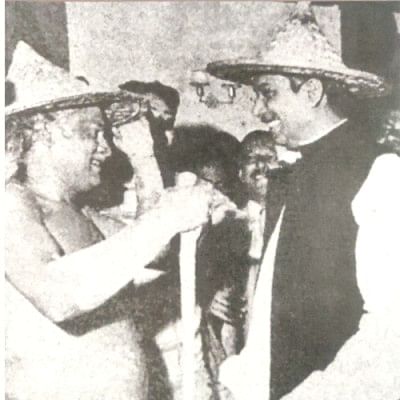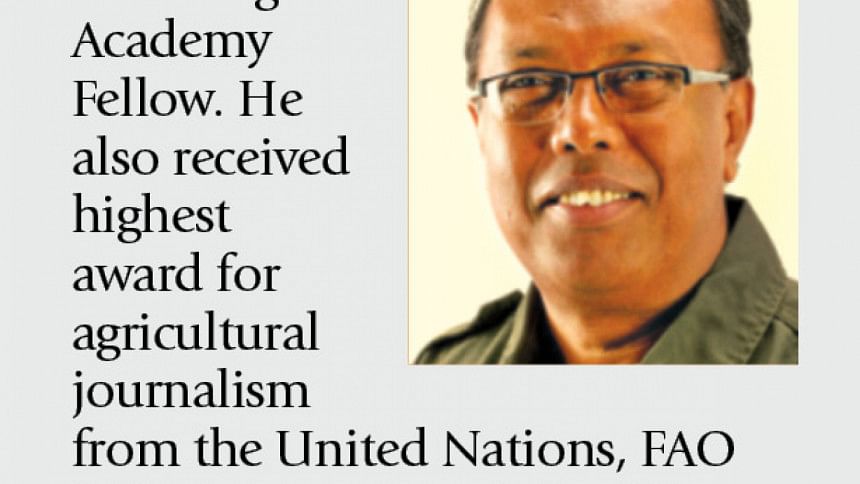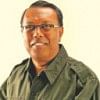Great leader of soil and people

March 17, 1920. The river Madhumati was flowing at her own will while its tributary Baigar has been alongside for many years. The smell of Robi crop was all around in Tungipara. Sheikh family heard the cry of a new born. It was the moment of arrival of the liberator of (Bangalees) Bengalis, the people who were suppressed for ages. sGrowing up amid the joys and sorrows of Madhumati, the farming families and changes of seasons, this boy became a young man who always craved for emancipation. Sheikh Mujibur Rahman, who later became the ultimate leader of Bangladesh, brought us our independence and gave birth to a country named Bangladesh. I went to Tungipara in Gopalganj in March this year. Memories of the father of the nation were everywhere. Struggle of marginalized, peasants, and labourers gave him the impetus to enter politics when he was pretty young. The seed of politics and will to work for people were sown inside during his student life. Sheikh Mujibur Rahman was an incomparable name in mass communication, oration and awakening the hardworking people in every corner of Bangladesh. If you go through his autobiography, 'The Unfinished Memories' and the 'Diary in Jail', you will get to know the depths of his mind, the landscape of his vision and his passion for the Bengal and its people. It is a new challenge for the people who have been deprived of land for many years. When day labourers of one district used to go to the other to harvest paddy, they would return with some paddies they received for their wages. They would carry those by boat. These people were called 'Dawal'. The autocratic government people started blocking the paddy boats of the Dawals and an announcement was made to confiscate the paddy and the boat if the paddy was not deposited to the government storage. Sheikh Mujib formed a movement on behalf of the Dawals and also awakened the ordinary people on behalf of the peasants and labourers.
Sheikh Mujibur Rahman played an outstanding role in every noteworthy movements for the betterment of Bengal. While Salam, Barkat, Rafiq, Jabbar and many others sacrificed their life in the Language Movement of 1952, Mujibur Rahman started a hunger strike at Faridpur prison. Bangabandhu became the leader with pure inspiration, and hope and aspiration of all the people residing in the then East Pakistan.
I saw an elderly farmer returning home from his farm work in Tungipara. I requested him to share any memory of Bangabandhu if it comes to his mind. "The government men were taking away rice from my house as I was in debt. Hearing the news, Sheikh Mujib came running and repaid the loan from his own pocket. After getting the money when policemen were leaving the spot Bangabandhu told them from the back, "The money has been paid, now you have to fix everything you have ruined." "Such a brave and kind man he was," added the old man.
All that Bangabandhu did and said was for the people of Bangladesh, especially the marginalized and the peasants. He was always vocal. If we see the attendants of the March 7, 1971, speech of Bangabandhu, we'll see most of them were ordinary people--farmers, labourers, students and people from all walks of life, but a significant portion of them was farmers. Farmers were at the forefront in the steps taken by Bangabandhu during the Liberation War as well as after the independence of Bangladesh. Bangabandhu thought very intensely about ensuring the constitutional rights of the farmers.
Article 14 of the constitution of Bangladesh states, "The main responsibility of the state is to liberate the working people--peasants and workers and to liberate other backward groups from all forms of exploitation." Article 16 of the constitution states, "In order to wipe out the discrimination in living standards between urban and rural people, he called for an agricultural revolution." He said, "No matter how boastful we try to be, we must not forget, we all are rooted in the soil and farming."

During his visits across the nation, Bangabandhu drew attention to various issues like agricultural heritage of different regions, condition of farmers, diversified crops and their rotation. He reminded about the unique features of the soil of this country. Father of the Nation Bangabandhu as the head of the government and head of the state got only 1,314 days to rebuild independent Bangladesh. His visionary, long-term and well-thought-out vision is in every aspect of Bangladesh's development. During the post-liberated period in 1972, the production of food grains in the country was 1.1 crore (11 million) tonnes. It was not enough for 7 crore (70 million) people during that time. The Bangabandhu government had provided food subsidies for two years after independence to curb down the food shortage. In the first five-year plan, more investment was made in mainstream agriculture, irrigation and other input facilities. Cooperatives played an essential role in Bangabandhu's agricultural development and food security. He discussed his thoughts with eminent economists, university professors and many other people from relevant fields. He took various initiatives to make the plan up-to-date. He thought of a two-tiered cooperative. There has been much research on his cooperative ideas. Active researchers and economists of that time still carry that memory and strategies. Bangabandhu told everyone to become a down-to-earth person so that people can contribute to the country in the best manner possible.
His speech at the Bangladesh Agricultural University on February 13 in 1973 provides a complete outline and philosophy for agricultural production and food production. He urged the agriculturists to go to the village. He said the gap between village and the city should be bridged. He also mentioned that modern and mechanized agriculture should be embraced. He also stressed on the issue that farmers should be honoured and respected. In 1973, Bangladesh Rice Research Institute was institutionalized through Act No 10. Initiatives for research of different crops, except rice, were taken at the Bangladesh Agricultural Research Institute. Horticulture Development Board, Cotton Development Board, Seed Certification Agency, Rubber Development Programme, Bangladesh Agricultural Development Corporation, Fisheries and Livestock Research Institute and Bangladesh Agricultural Research Council, the highest body for research coordination were reconstituted.
The ministry of jute was established to expand the potential of the golden fibre of Bengal. Today, Bangladesh's progress in agricultural development is appreciated and followed all over the world. We are getting excellent benefits of Bangabandhu's dream and initiatives. The world is amazed at the foresight of an undisputed leader.
Father of the Nation Bangabandhu is in the heart of our farmers and evolution of the farming sector of Bangladesh. Today, we're experiencing an extraordinary agricultural awakening. I have been walking in rural Bangladesh for more than four decades. In the farmer's field, I have seen many adverse conditions and hardships of the agrarian population. I have also witnessed thousands, lakhs of people focus on agriculture with confidence. This confidence comes from the great leader Bangabandhu Sheikh Mujibur Rahman, whose motto was never to look back and fight back with what you have. Most profound homage on the 45th martyrdom anniversary of Father of the Nation Bangabandhu Sheikh Mujibur Rahman and his family members.

 For all latest news, follow The Daily Star's Google News channel.
For all latest news, follow The Daily Star's Google News channel. 



Comments